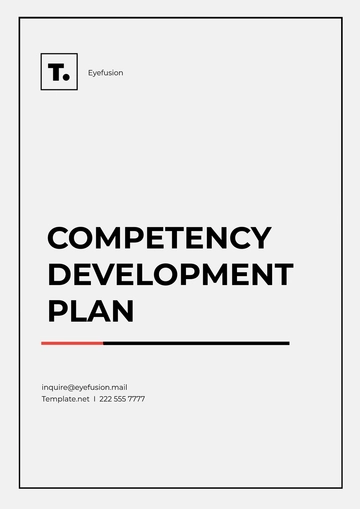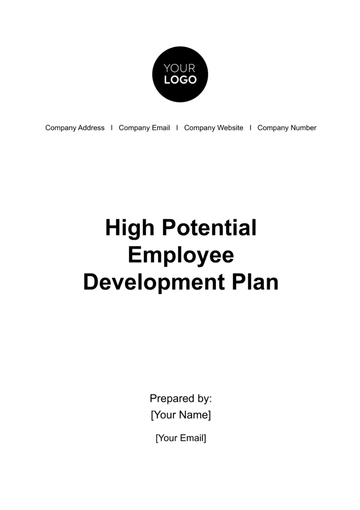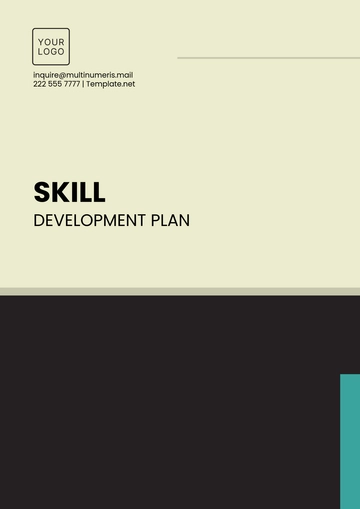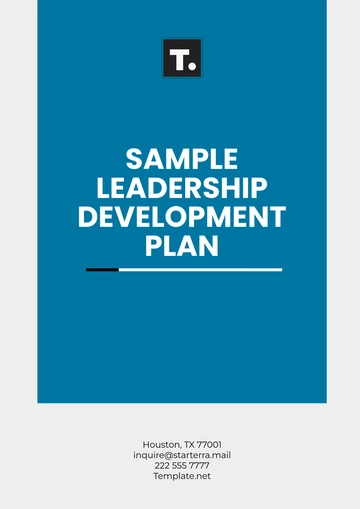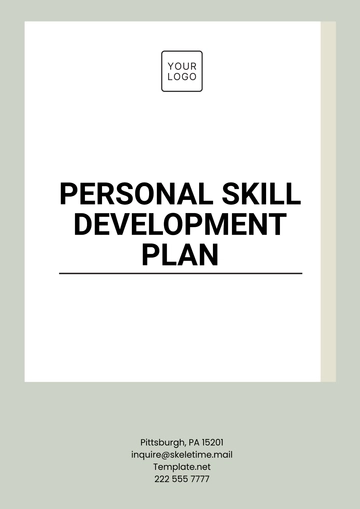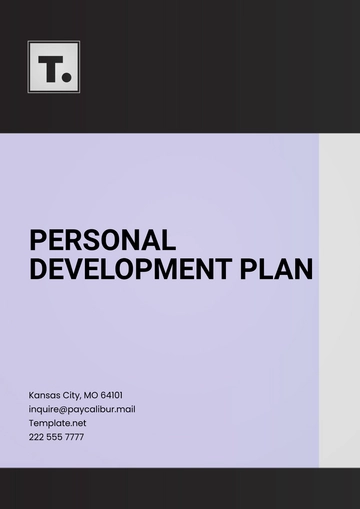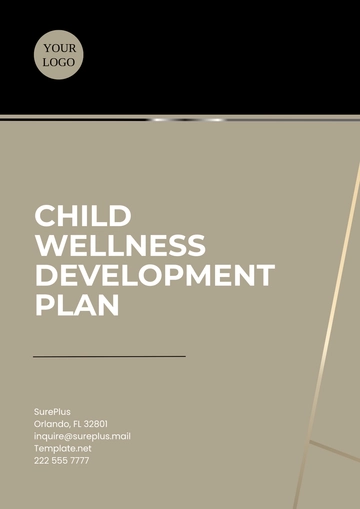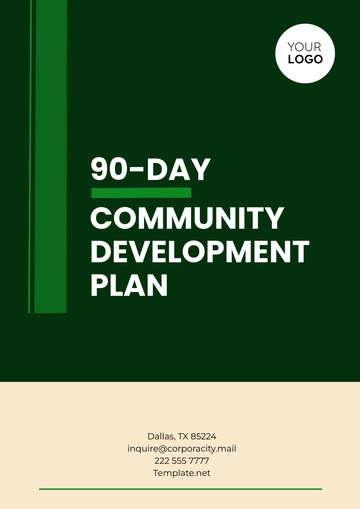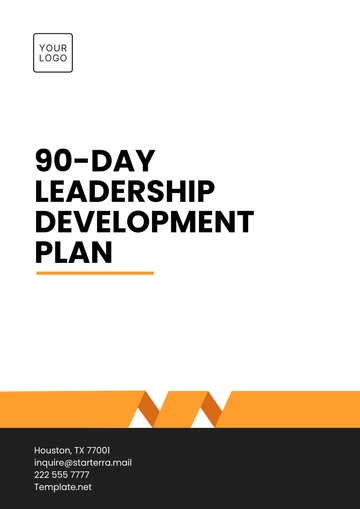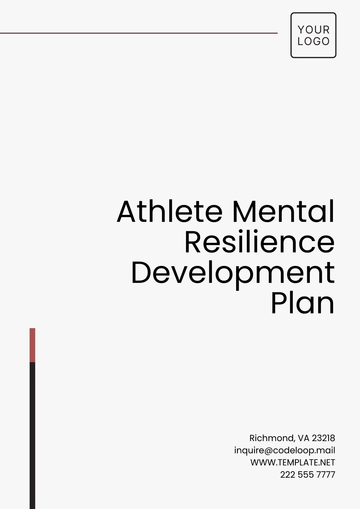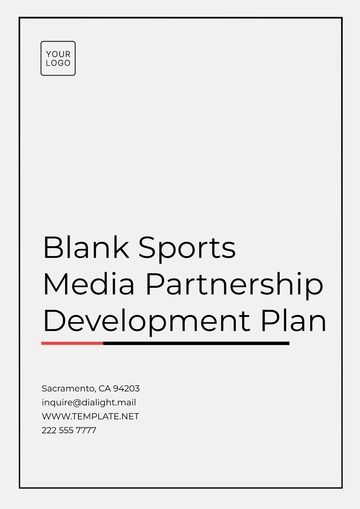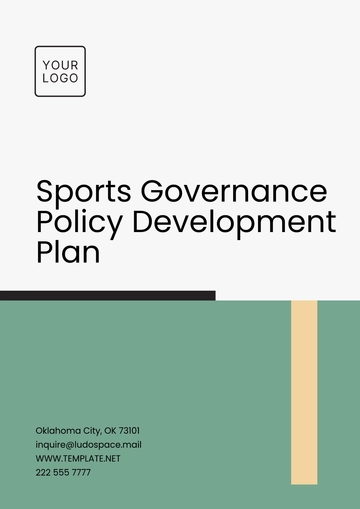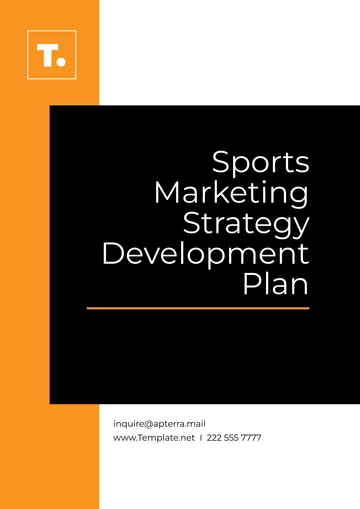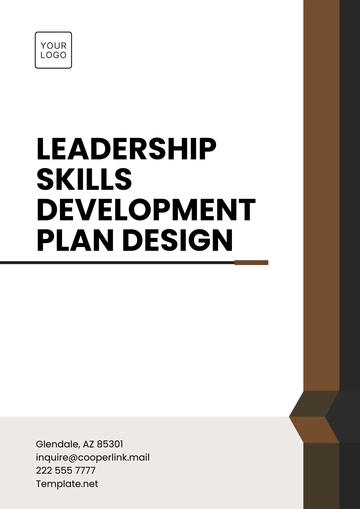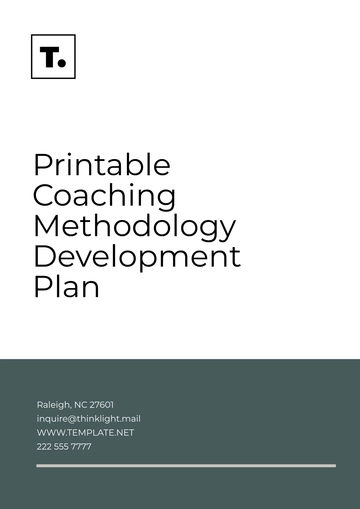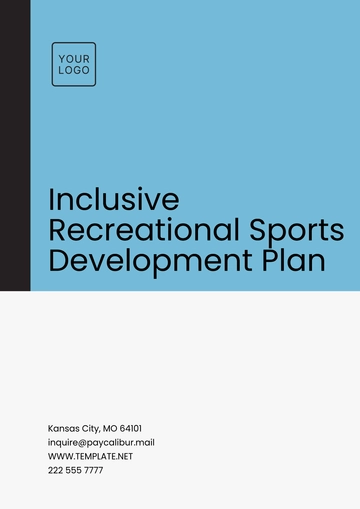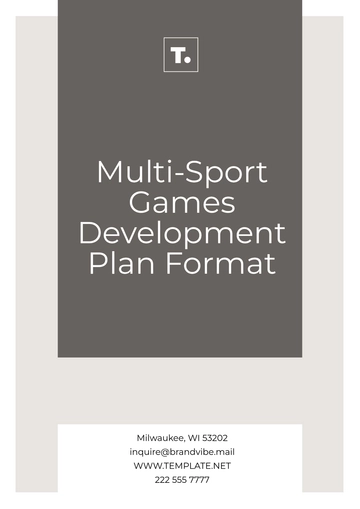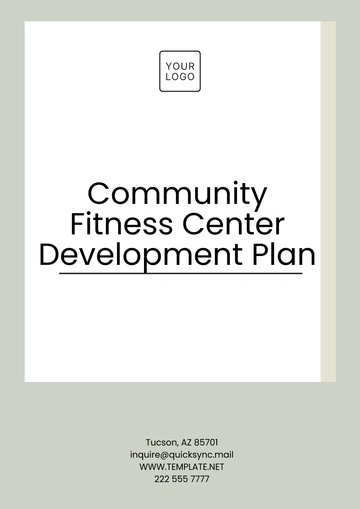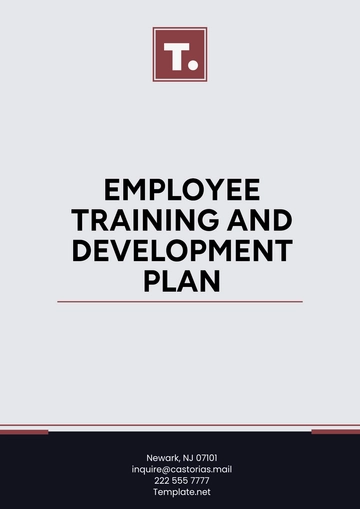Free Sample Leadership Development Plan
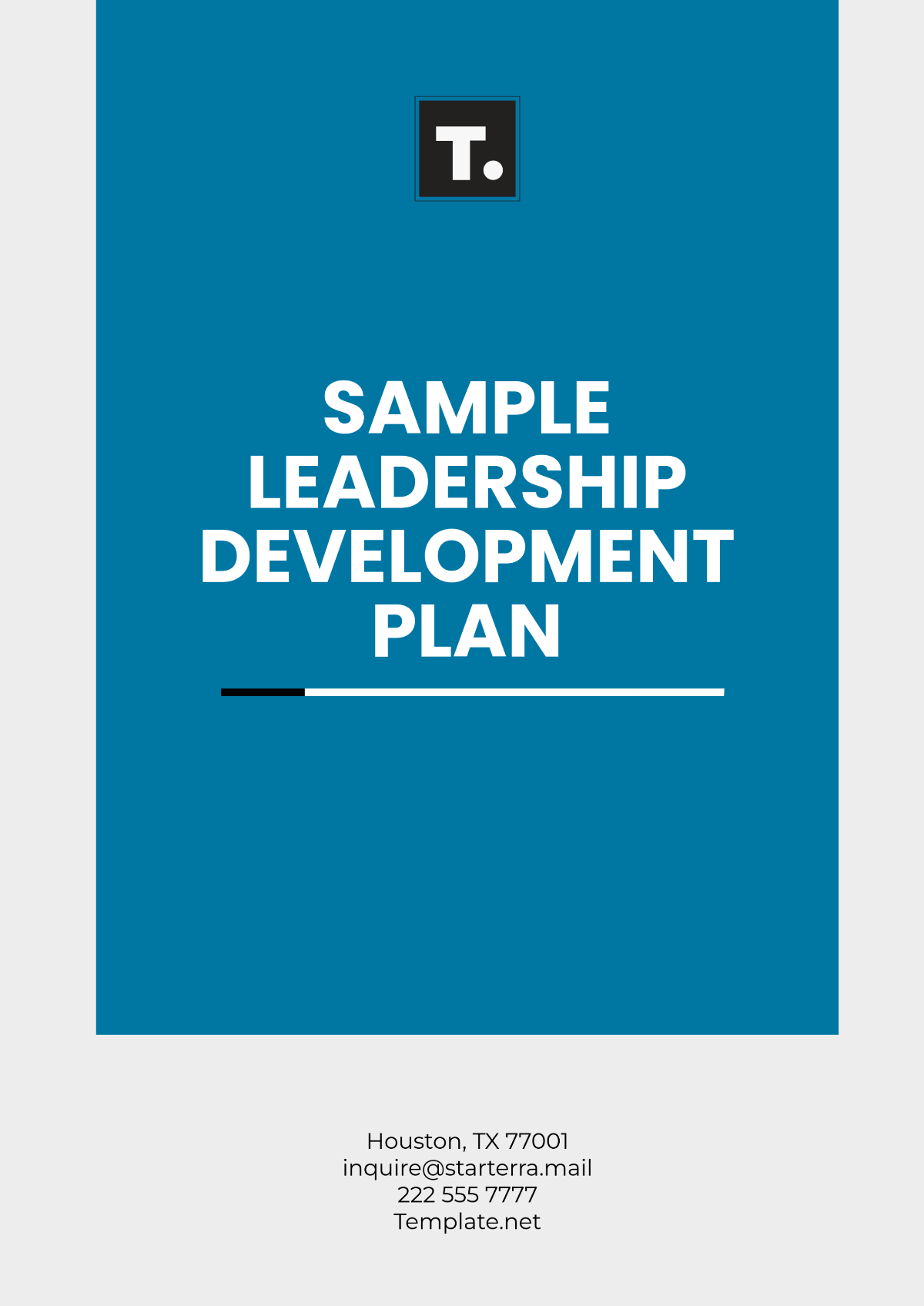
Prepared By:
[YOUR NAME]
[YOUR COMPANY NAME]
Overview
This Leadership Development Plan is designed to provide a structured approach for individuals aiming to enhance their leadership skills. It includes specific goals, actions, and resources to improve key leadership competencies, ensuring growth in areas such as strategic thinking, communication, emotional intelligence, and decision-making. The plan can be personalized to fit individual needs, ensuring effective leadership development in alignment with both personal and organizational objectives.
Leadership Development Goals
1. Enhance Strategic Thinking
Objective: Improve the ability to think long-term, analyze complex situations, and make strategic decisions that align with organizational goals.
Actions:
Participate in strategic planning workshops.
Complete a course on advanced business strategy.
Engage in monthly brainstorming sessions with senior leadership to discuss long-term initiatives.
Resources:
Online business strategy course (e.g., Coursera, Harvard Business School).
Books: "Good Strategy, Bad Strategy" by Richard Rumelt.
Timeline: 6 months
2. Develop Emotional Intelligence
Objective: Increase emotional intelligence (EQ) to better manage relationships, navigate social complexities, and lead teams effectively.
Actions:
Complete an EQ assessment and set measurable improvement goals.
Attend a leadership development program focused on emotional intelligence.
Seek feedback from team members and peers on leadership style and interpersonal interactions.
Resources:
Emotional Intelligence 2.0 by Travis Bradberry and Jean Greaves.
EQ assessments and coaching services.
Timeline: 3-4 months
3. Improve Communication Skills
Objective: Strengthen communication abilities, including active listening, clarity in messaging, and adapting to different audiences.
Actions:
Attend workshops on public speaking and presentation skills.
Lead team meetings to practice effective communication.
Seek constructive feedback after presentations and meetings to refine messaging.
Resources:
Toastmasters International for public speaking practice.
Online communication skills course (e.g., LinkedIn Learning).
Timeline: 3 months
4. Strengthen Decision-Making Abilities
Objective: Develop a systematic approach to decision-making that balances risk, intuition, and data analysis.
Actions:
Attend decision-making and problem-solving seminars.
Use case studies to practice analyzing complex decisions in business scenarios.
Regularly involve team members in decision-making processes to improve collaborative leadership.
Resources:
"The Decision Book" by Mikael Krogerus and Roman Tschäppeler.
Decision-making simulation games and tools.
Timeline: 4 months
5. Enhance Conflict Resolution Skills
Objective: Build the ability to manage and resolve conflicts in a way that fosters collaboration and positive outcomes.
Actions:
Attend conflict management training.
Observe senior leaders managing conflicts and apply learned techniques in their teams.
Participate in role-playing exercises that simulate workplace conflict scenarios.
Resources:
Conflict resolution workshops or online courses.
Books: "Crucial Conversations" by Kerry Patterson et al.
Timeline: 3 months
Mentorship & Coaching
Mentor Assignment
Mentor: Senior Executive (Assigned by HR)
Frequency: Monthly one-on-one meetings to discuss progress and challenges.
Coaching Sessions
Coach: Professional Leadership Coach
Frequency: Bi-monthly coaching sessions to track progress and adjust goals as necessary.
Evaluation and Feedback
Performance Evaluation
Quarterly Assessments: At the end of each quarter, the individual’s progress will be reviewed based on self-assessments, feedback from peers, and input from mentors and coaches.
Key Performance Indicators (KPIs): Achievement of specific leadership competencies outlined in the plan, such as improved team performance, decision-making quality, and communication effectiveness.
Feedback Mechanisms
360-Degree Feedback: Gathering feedback from colleagues, direct reports, and managers to assess growth in leadership areas.
Self-Reflection: Regular journaling and self-assessment on leadership strengths and areas for improvement.
Conclusion
This Leadership Development Plan provides a clear roadmap for developing essential leadership skills. By focusing on strategic thinking, emotional intelligence, communication, decision-making, and conflict resolution, the individual will be well-equipped to take on increased responsibilities and contribute more effectively to organizational success.
- 100% Customizable, free editor
- Access 1 Million+ Templates, photo’s & graphics
- Download or share as a template
- Click and replace photos, graphics, text, backgrounds
- Resize, crop, AI write & more
- Access advanced editor
The Sample Leadership Development Plan Template from Template.net offers a customizable, editable solution for shaping effective leadership growth. Tailor leadership goals, strategies, and action plans to specific needs. Fully editable in our Ai Editor Tool, this template provides a seamless way to create a personalized development roadmap for current and future leaders.
